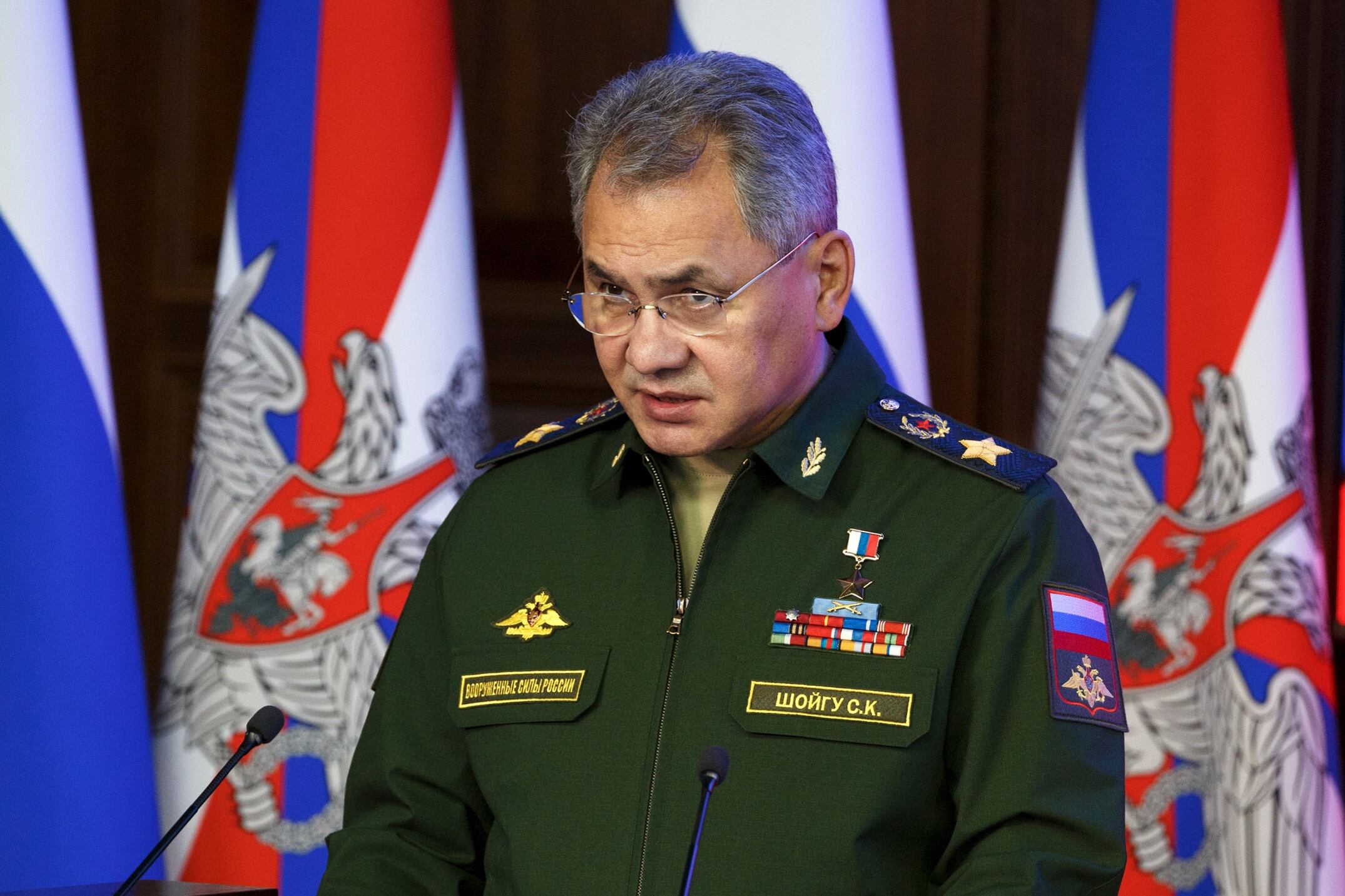MOSCOW — Along with a steady flow of new missiles, planes and tanks, Russia's defense minister said Wednesday his nation also has built up its muscle by forming a new branch of the military — information warfare troops.
Sergei Shoigu's statement — which came amid Western allegations of Russian hacking — marked the first official acknowledgement of the existence of such forces.
Speaking to parliament, Shoigu said that the military received a sweeping array of new weapons last year, including 41 intercontinental ballistic missiles.
He added that the wide-ranging military modernization will continue this year, with the air force set to receive 170 new aircraft. The army will receive 905 tanks and other armored vehicles, and the navy will receive 17 new ships.
Also this year, three regiments of Russia's strategic nuclear forces will receive new intercontinental ballistic missiles, Shoigu said. Each regiment has up to 10 launchers.
The rising number of new weapons has raised demands for new personnel. Shoigu said the military currently needs 1,300 more pilots and will recruit them by 2018.
Declaring the formation of the dedicated information warfare troops, Shoigu noted that "propaganda needs to be clever, smart and efficient." He wouldn't describe the troops' mission.
Retired Gen. Vladimir Shamanov, the head of defense affairs committee in the lower house of parliament, was equally vague, saying that the information warfare troops' task is to "protect the national defense interests and engage in information warfare," according to the Interfax news agency. He added that part of their mission is to fend off enemy cyberattacks.
Viktor Ozerov, the head of the upper house's defense and security committee, also told Interfax that the information troops will protect Russia's data systems from enemy attacks, not wage any hacking attacks abroad.
U.S. intelligence agencies have accused Russia of hacking Democratic emails to meddle in the U.S. election, a claim Moscow has denied. Some EU officials also voiced concern that the Kremlin could seek to influence this year's elections in the Netherlands, France and Germany.
Retired Col. Gen. Leonid Ivashov, the former head of the Defense Ministry's international cooperation department, said that Russia should rely on information warfare troops to fight back against what he described as Western propaganda.
"We must stop offering excuses and force the West into the defensive by conducting operations to expose its lies," Ivashov said in remarks carried by RIA Novosti news agency.
A severe money crunch after the 1991 collapse of the Soviet Union left the military in tatters, with most of its planes grounded and ships left rusting at harbor for lack of funds. As part of President Vladimir Putin's military reforms, the armed forces have received new weapons and now engage in regular large-scale drills.
Russia has used its revived military capability in Syria, where it has launched an air campaign in support of Syrian President Bashar Assad and used the conflict to test its new weapons for the first time in combat.
The weapons modernization effort has seen the 1 million-strong Russian military narrow the technological gap in areas where Russia had fallen behind the West, such as long-range conventional weapons, communications and drone technologies.
Shoigu said the military now has 2,000 drones compared to just 180 in 2011. He also noted that Russia has now deployed new long-range early warning radars to survey the airspace along the entire length of its borders.
Shoigu also said the military will complete the formation of three new divisions in the nation's west and southwest, and also deploy a new division on the Pacific Islands, which have been claimed by Japan.
The dispute over the Kuril Islands just north of Japan, which the former Soviet Union seized in the closing days of World War II, has prevented the two countries from signing a peace treaty.
Russia previously has deployed new long-range anti-ship missiles on the Kurils to protect the coast. The deployment of a full-fledged Russian army division there appears intended to stake Moscow's claim to the islands, which have strategic importance and are surrounded by fertile fishing grounds.




